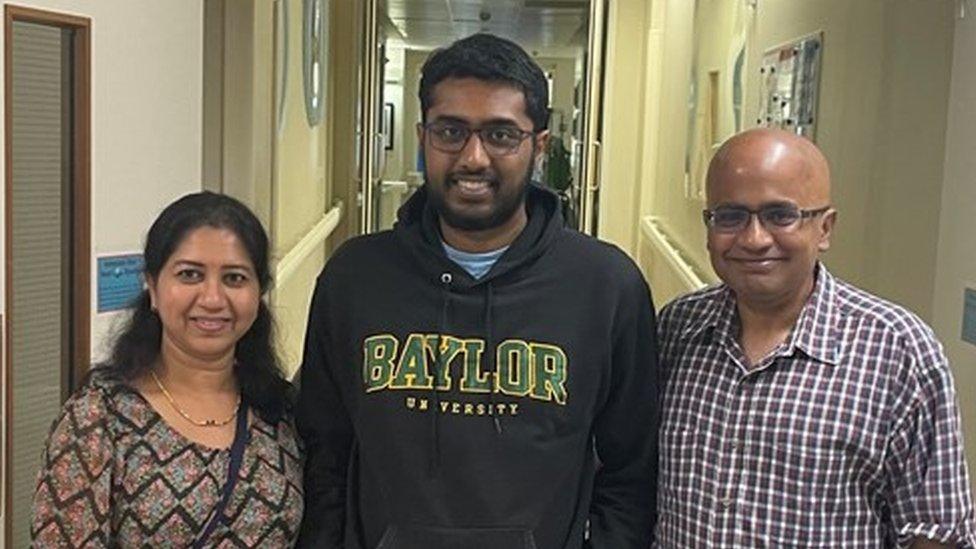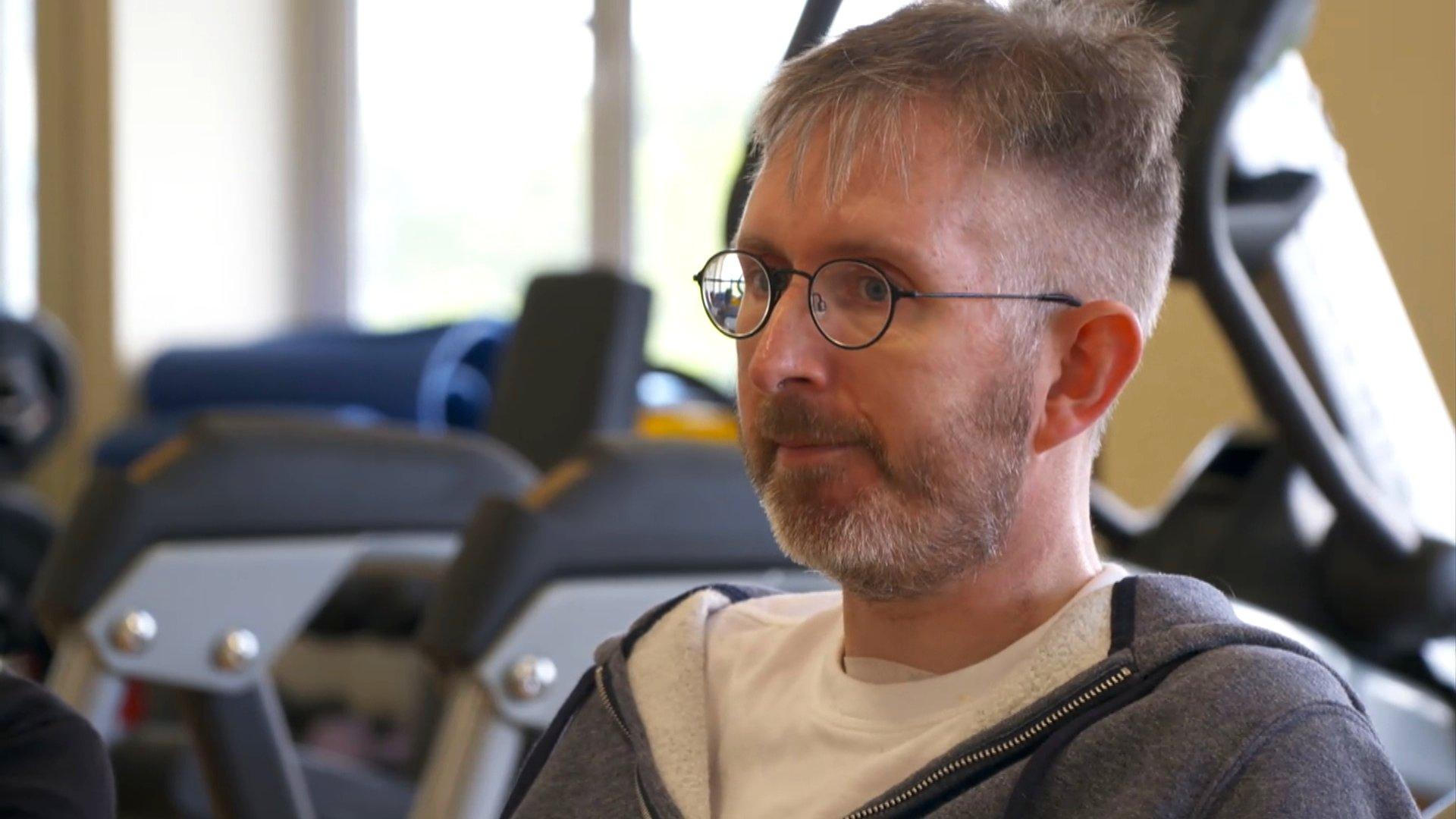Student Atul Rao hails medics who restarted his heart six times
- Published

Atul Rao went back to the hospital a couple of months after his collapse to thank the medics
A student whose heart stopped six times in one day has said the experience has made him realise he wants to follow in the footsteps of those who saved him.
Atul Rao, 21, went into cardiac arrest after blood clots in his lungs stopped his heart from beating on 27 July.
It stopped five more times, settling once clot-busting drugs kicked in.
Atul, a US citizen studying a pre-medical degree who was in London at the time, said the experience made him want to continue a career in medicine.
"Before this happened, I was starting to wonder if I was doing the right thing doing medicine and whether I should be going into business instead.
"But the minute I woke up, I knew. I want to use my time in a productive way. I want to use my second chance at life by helping others."

Medics did not think Atul was going to survive
Atul and his parents have since visited the staff who saved his life.
At Hammersmith Hospital where Atul was initially treated before being transferred to St Thomas' Hospital, they were shown the bed space where his heart was repeatedly restarted and spoke to clinicians about what happened.
His mum, Srividhya, a maths professor in Seattle, said: "A really bad thing happened in a really good place.
"Everyone who worked around Atul wanted him to be well. It's clear they love and care about what they do. I feel blessed to be here and I'm so thankful and grateful to you for giving my son back to me.
"I have gained perspective about life and he gets to see it at such a young age. His life has changed, and it's had a profound impact."
Atul said the incident coincided with his 21st birthday.
"Most 21-year-olds want to go out drinking. Given how dangerous my situation had been, I was grateful to be here and have people who love me around to celebrate."

Atul's father Ajay was told of his son's collapse by paramedic Nick Sillett
His father Ajay, who works at a software company, remembered how London Ambulance Service (LAS)'s advanced paramedic Nick Sillett broke the news to him from the scene via his son's mobile.
He showed Mr Sillett the barely legible notes he took during the call, his hands shaking, and spoke of his agonising flight over to London after knowing decisions were being made that could affect whether his son would live.
'Hey dad'
"At the start Atul was sedated. I used to call St Thomas' Hospital ICU in the mornings after the doctors' rounds to ask for news and one morning they said 'hold on'.
"Then I heard Atul come on and say 'hey, dad'. It was the sweetest 'hey, dad' I have ever heard and I wanted to run to him right away."
The paramedic said the reunion had been very emotional.
"The last time I saw Atul I didn't think he was going to survive.
"To meet him again and speak with his parents after giving them such terrible news was a very special moment in my 18 years in this job."

Atul's mother Srividhya says it has had a profound impact on their lives
Dr Louit Thakuria, a critical care consultant at Imperial College Healthcare NHS Trust's Hammersmith Hospital, said: "It's not often you see 20-year-olds have a cardiac arrest and it's even more rare to see someone who has had six cardiac arrests in one day make such a miraculous recovery.
"This was a real team effort and so many people helped ensure Atul was able to be here. It's a privilege to be a part of that and hear that you have helped make such a positive impact."
LAS said what happened to Atul showed the importance of knowing what to do instantaneously when someone is having a cardiac arrest.
"Evidence shows that in cardiac arrest, every second counts and early chest compressions and defibrillation can more than double someone's chances of survival," it said.
Although Atul did not need to use an extracorporeal membrane oxygenation (ECMO), a life support system which can fully replace the work of the heart and lungs so patients have time to heal, Imperial Health Charity - which has already bought one machine - is fundraising to buy two more.
LAS said recent studies had shown that for some patients who were suitable for ECMO therapy, the number of potential survivors could rise to 43%.

Listen to the best of BBC Radio London on Sounds and follow BBC London on Facebook, external, X, external and Instagram, external. Send your story ideas to hello.bbclondon@bbc.co.uk, external
Related topics
- Published31 July 2020
